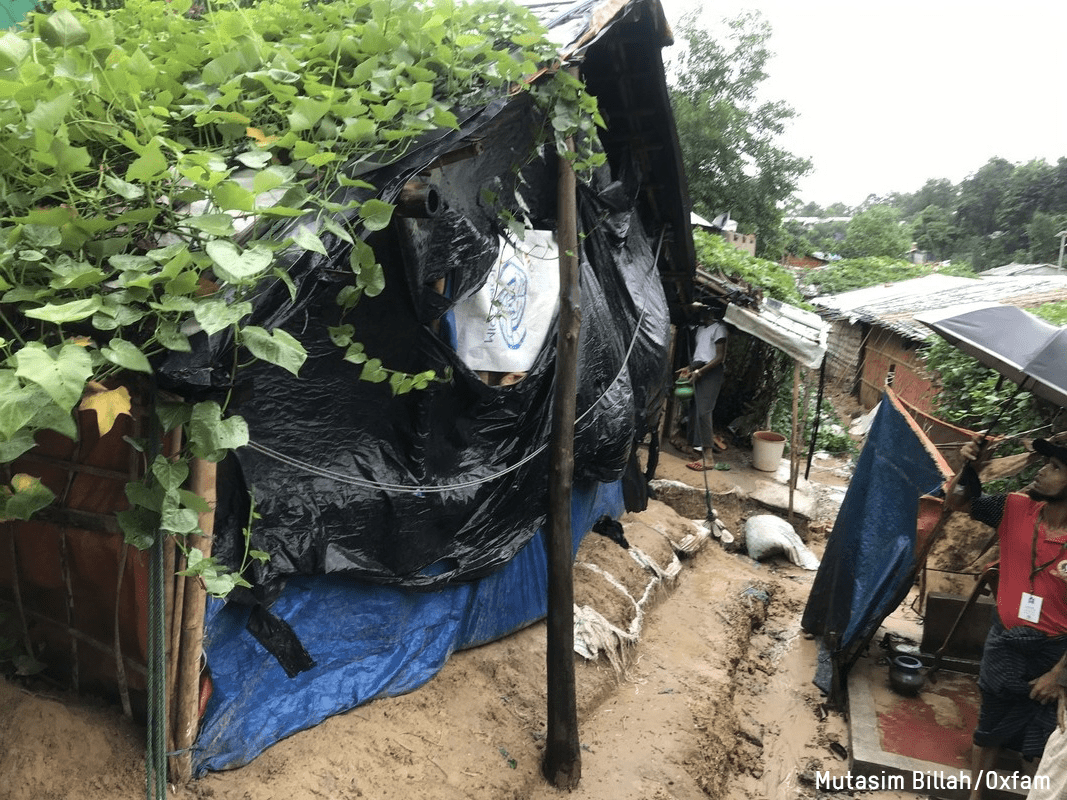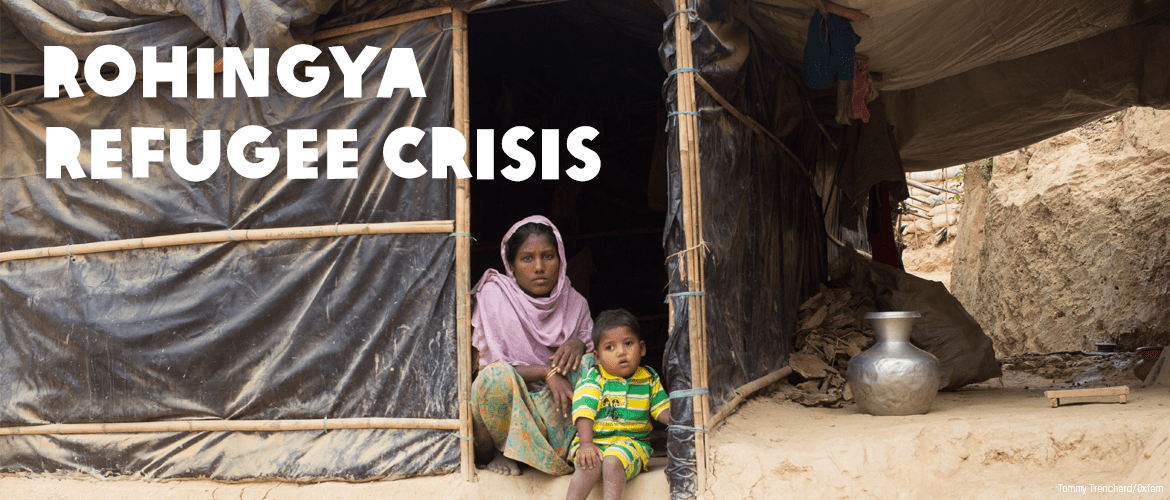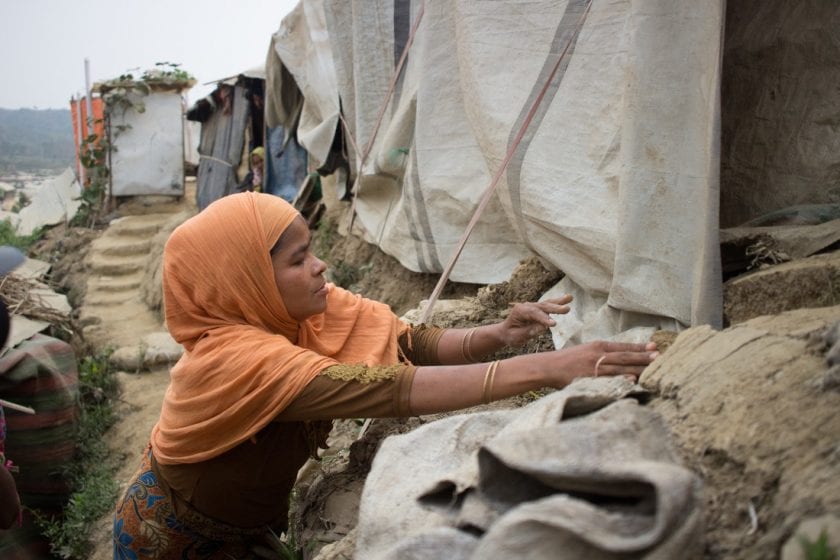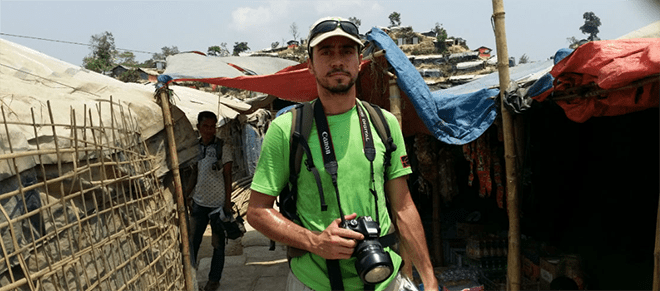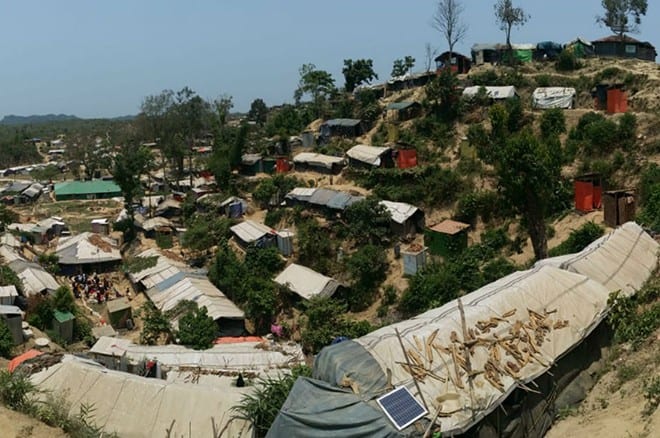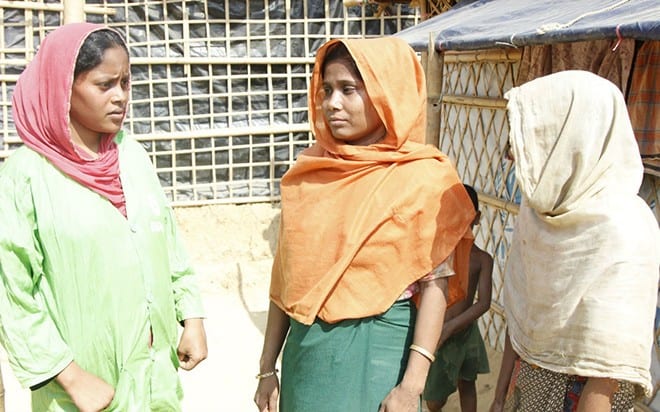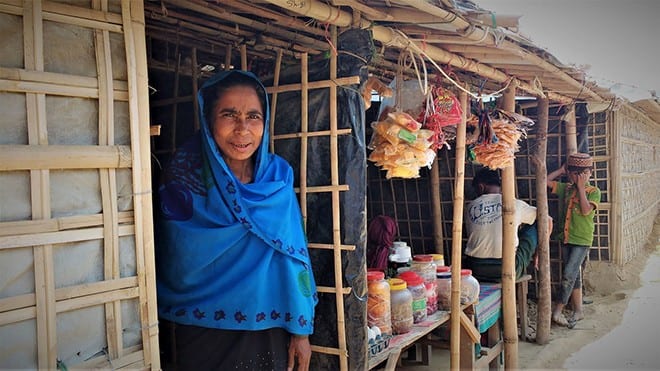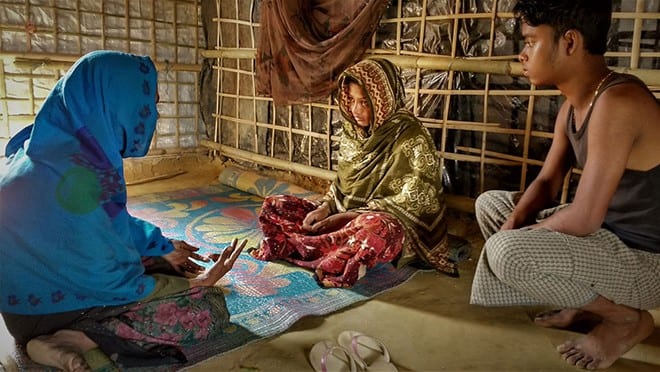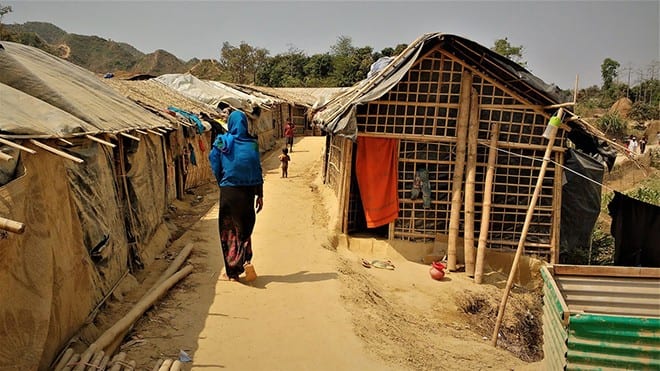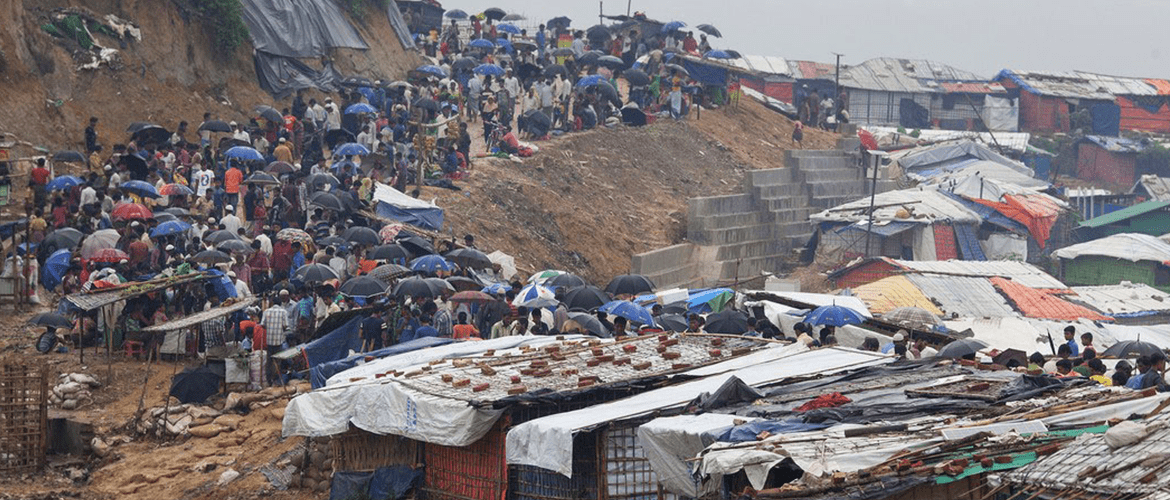
Dipankar Datta, Oxfam Bangladesh Country Director said: “Our worst fears have been confirmed as the virus hits the overcrowded camps where many people are suffering from pre-existing health conditions.
“With 40,000 people crammed per square kilometre maintaining social distance is impossible. People share water and toilet facilities making it extremely challenging to maintain the strict hygiene needed. If a serious outbreak is to be avoided more prevention and containment measures – adapted to the needs of women and men – must be rapidly put in place.”
If the cyclone hits, the contamination of water sources caused by heavy rains and flooding could lead to a spike in illnesses. And any weakening of people’s immune systems will likely leave them even more vulnerable to the coronavirus.
Oxfam is providing humanitarian relief, including essential water and sanitation to the refugees and the local host community.
Datta said: “Every effort is being made to keep the people safe, but there are huge gaps. We need more funds to immediately ramp up hygiene, health, and protection facilities to save lives. All governments and international agencies must step in to make sure no one is left behind.
“Our frontline workers and partners are providing clean water and toilets in Cox’s Bazar, and supporting the local host community with food and hygiene kits. Since the pandemic began, Oxfam teams have been promoting awareness on hygiene, hand washing, and Covid-19 prevention practices.”
Last week, Oxfam installed an innovative new contactless hand washing station designed with community input to reduce the risks of Covid-19 transmission. In the coming weeks teams will install more facilities.
Oxfam aims to raise approximately $3m to be able to ramp up its response in the camps. To date, less than a fifth of the UN Joint Response Plan for the Rohingya refugees has been funded.
Datta said: “While nations around the world are understandably focused on containing the spread of the pandemic amongst their people, it is crucial that the international community does not turn its back on at-risk populations. Special attention needs to be paid to the particular risks faced by women and girls during the Covid-19 crisis.“
Notes to the editors
- In Bangladesh, Oxfam has stepped up its work on hygiene promotion and water and sanitation facilities for the most vulnerable marginalized communities including in the Rohingya camps in Cox’s Bazar, where some 855,000 refugees currently live in extremely overcrowded conditions. With 23 local partners, Oxfam reached 106,050 people in 21 districts with food, hygiene promotion and protection materials in the country.
- Oxfam is also providing hygiene promotion activities and essential water and sanitation to 173,000 Rohingya refugees in the camps and 9000 people in the host communities in Cox’s Bazar.
- There are now roughly 19,000 confirmed cases in Bangladesh– and likely many more due to limited testing capacity.



